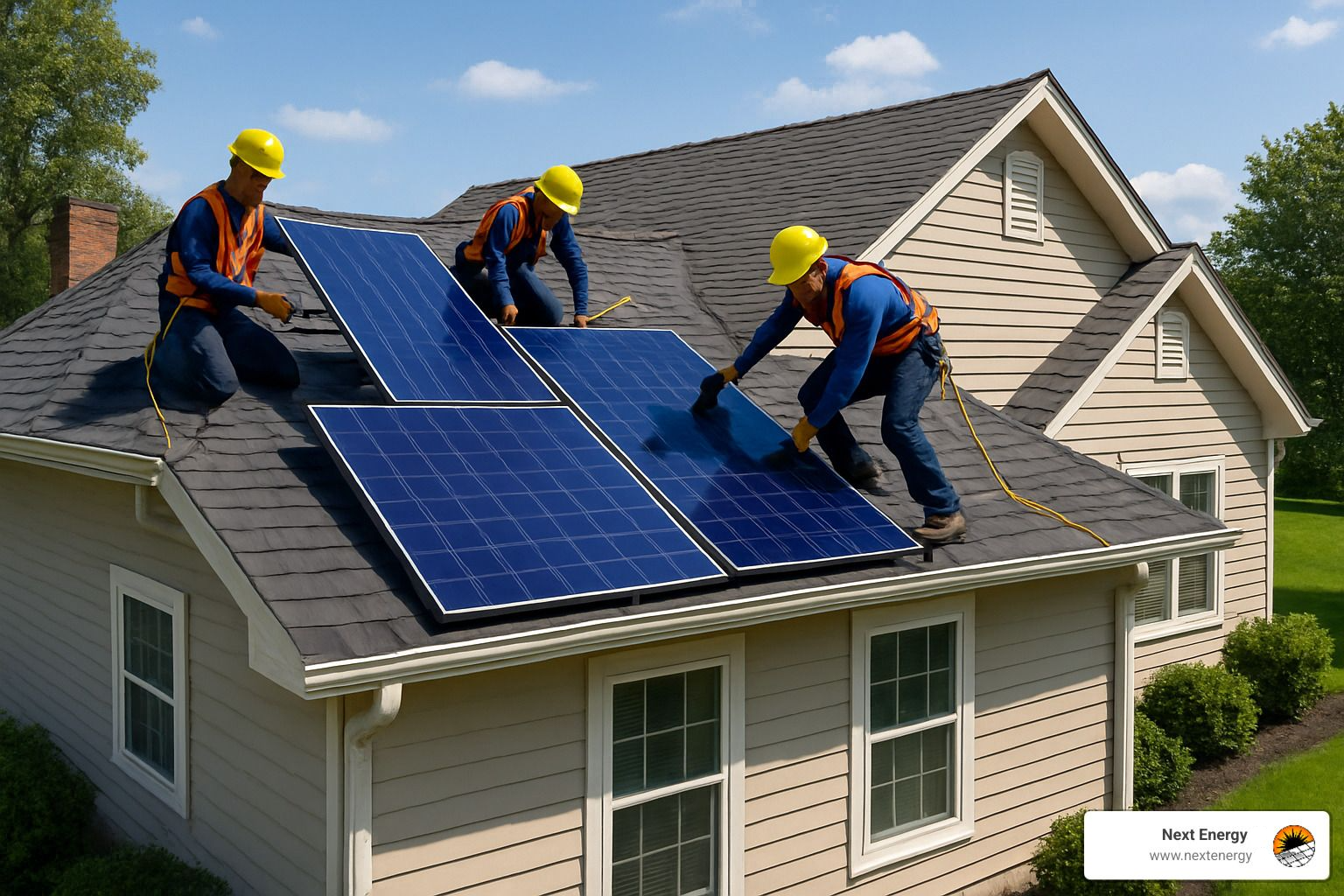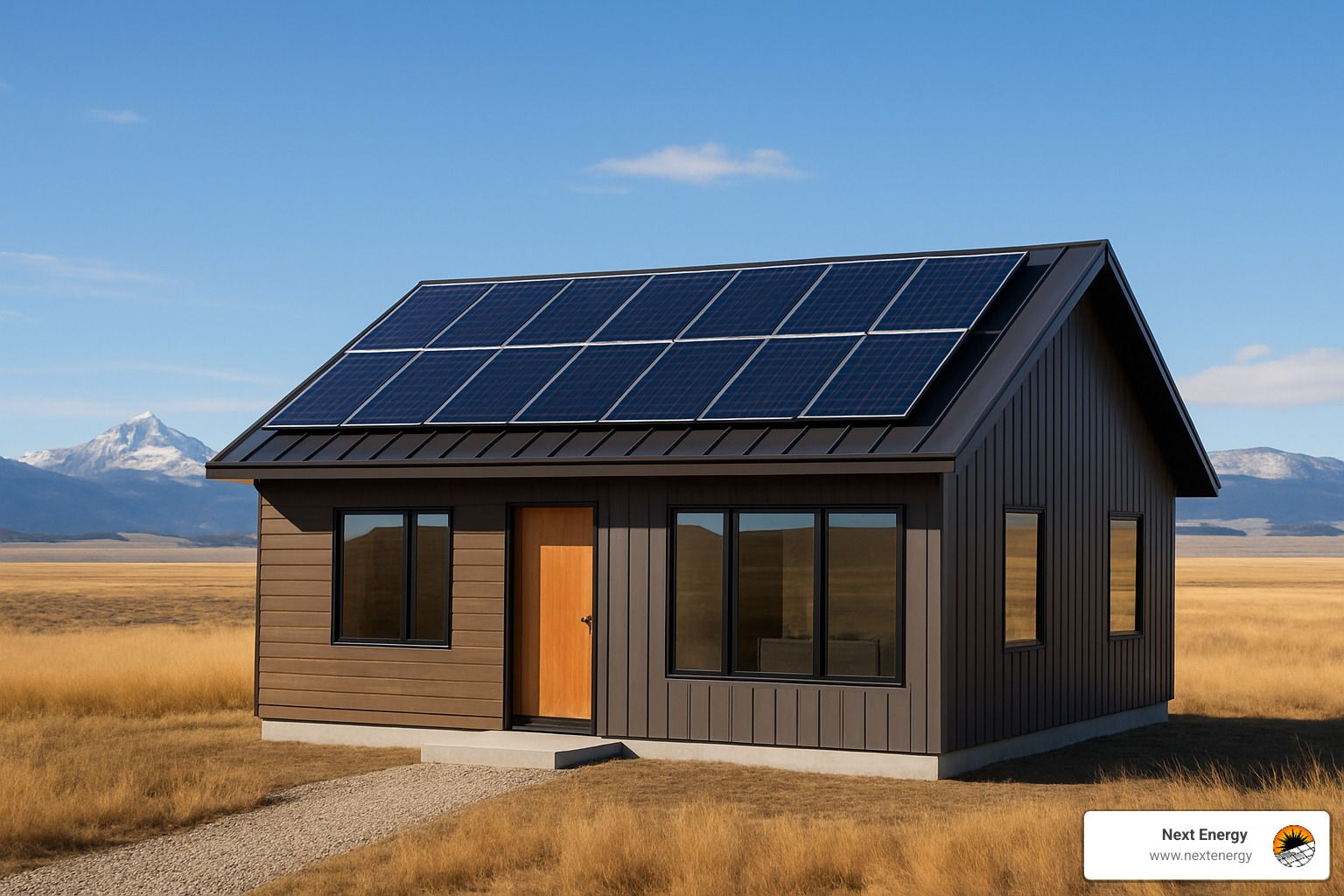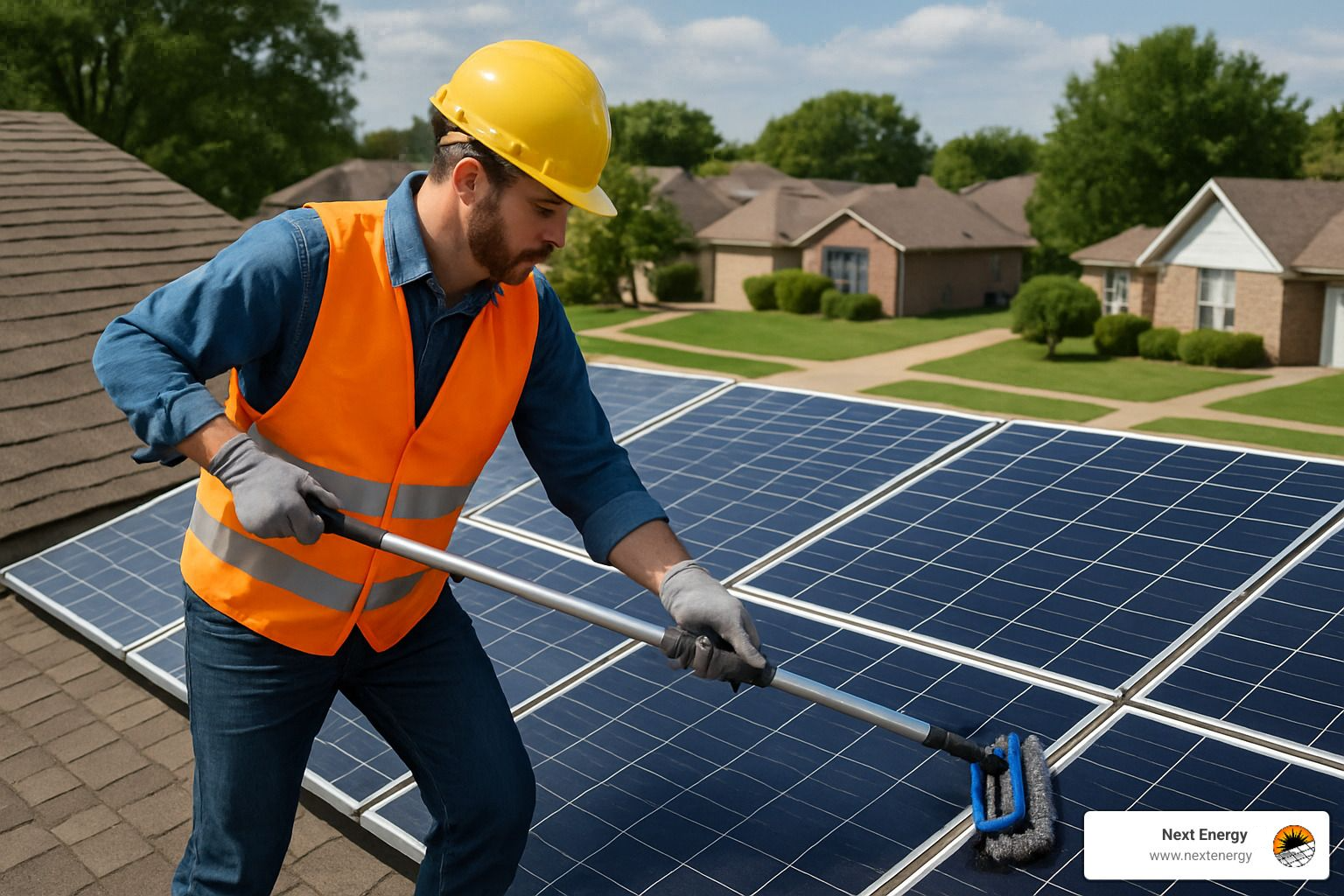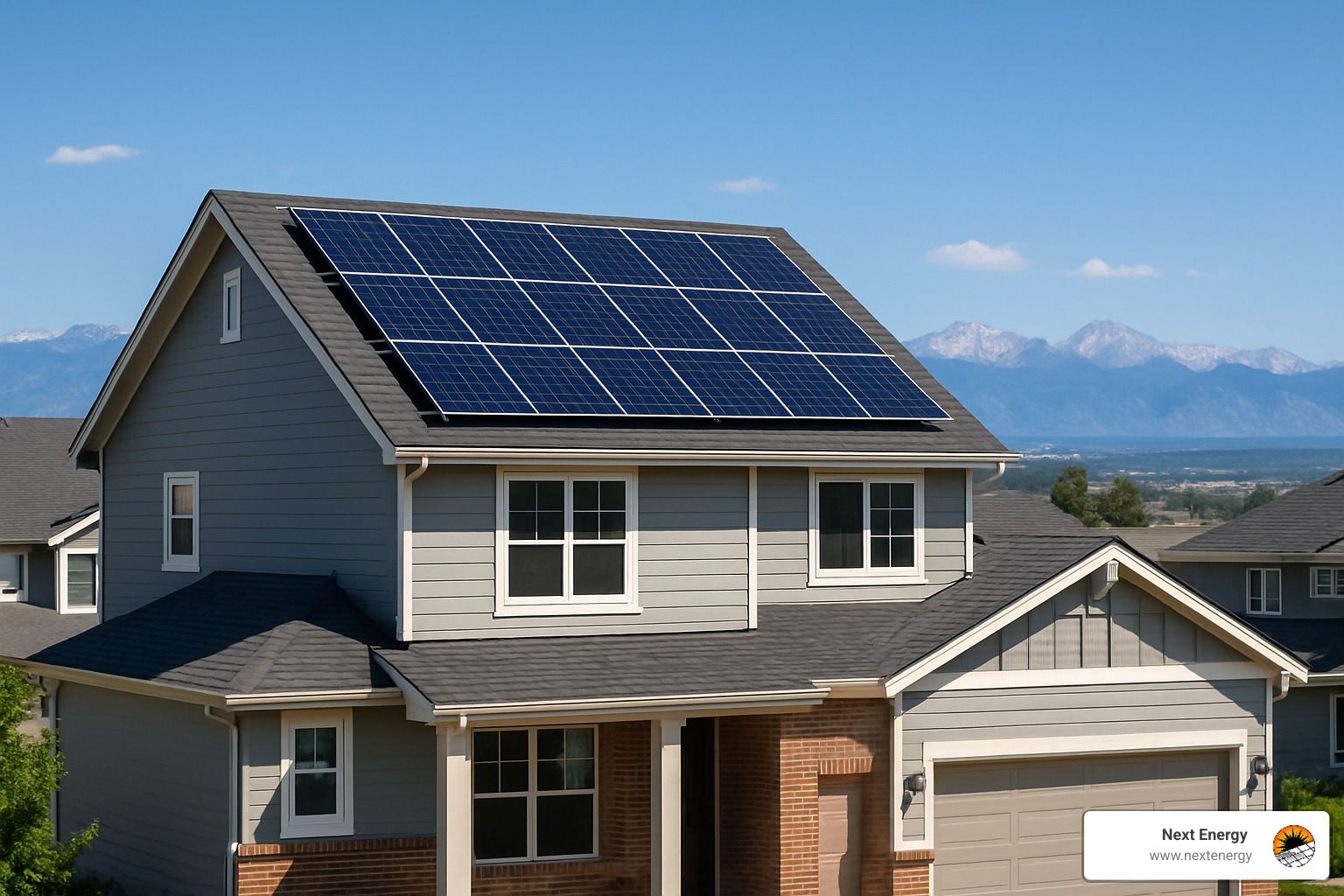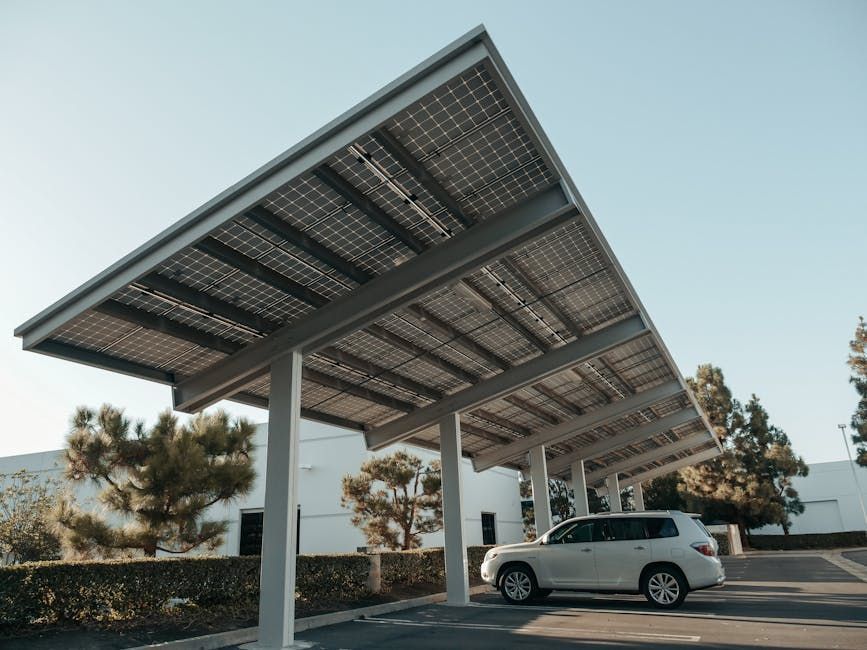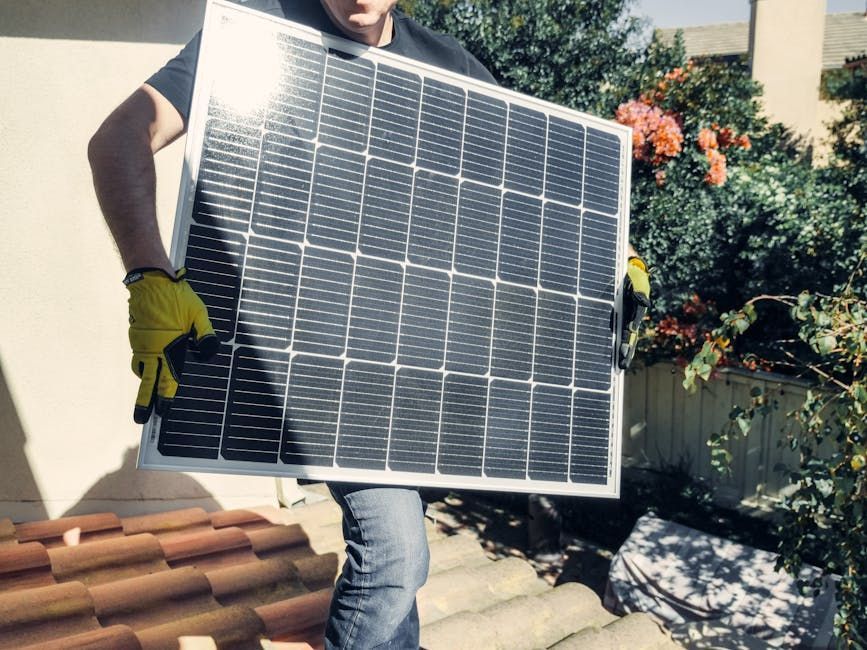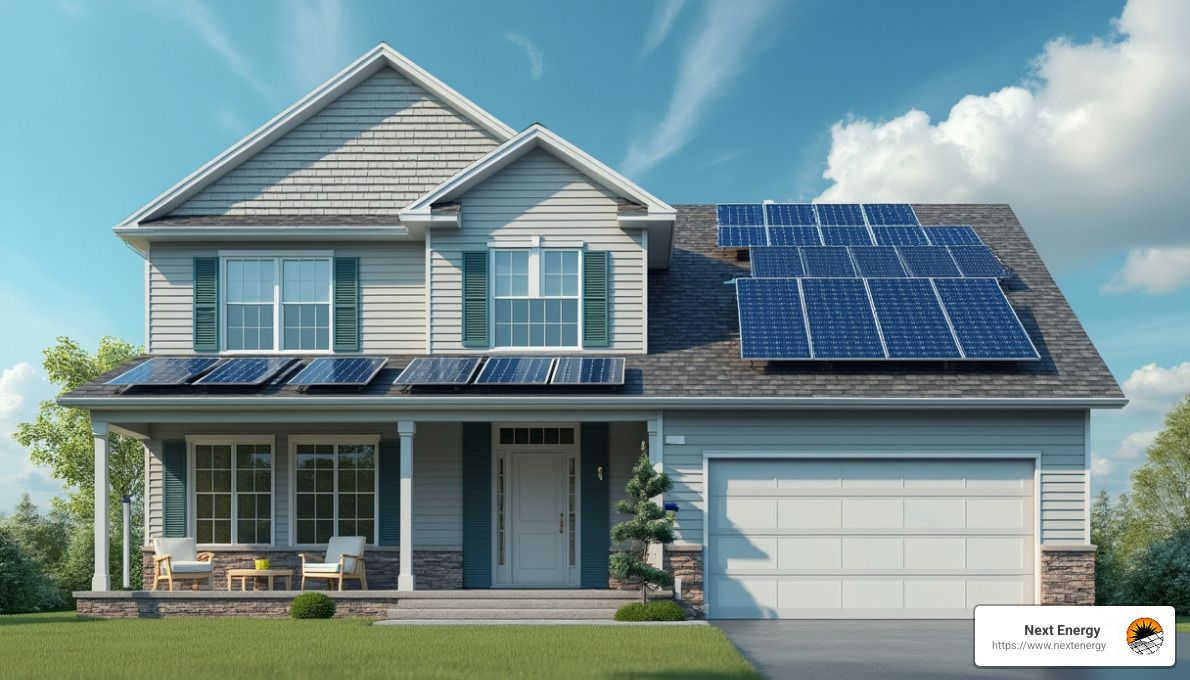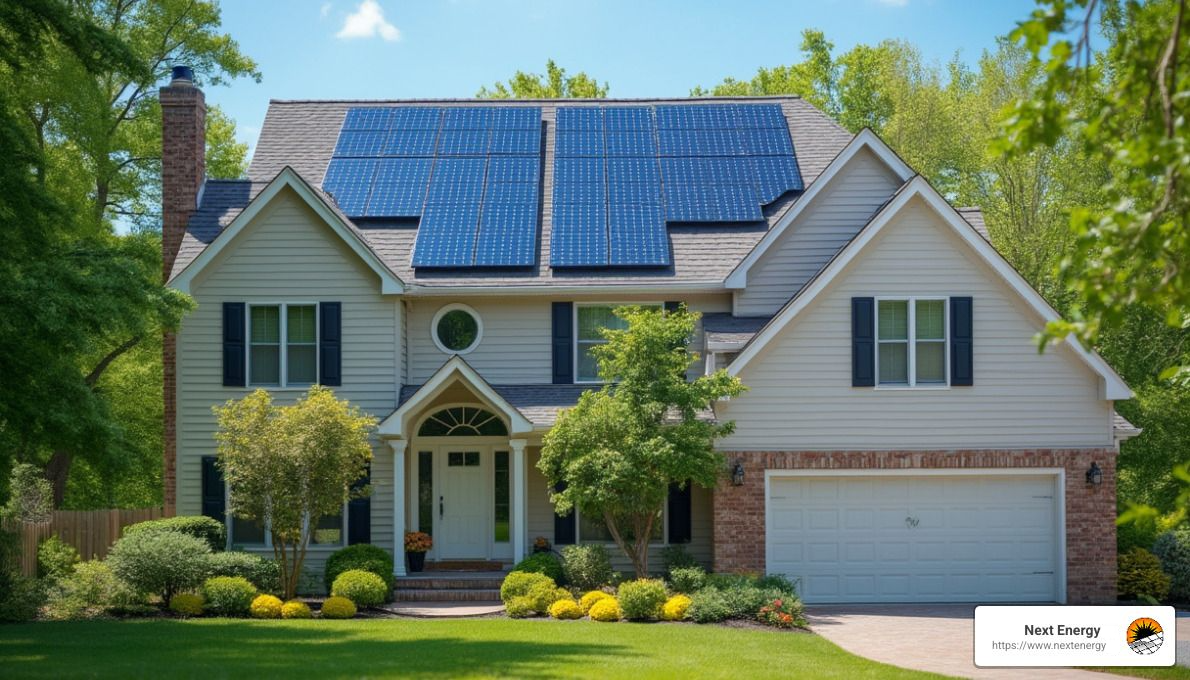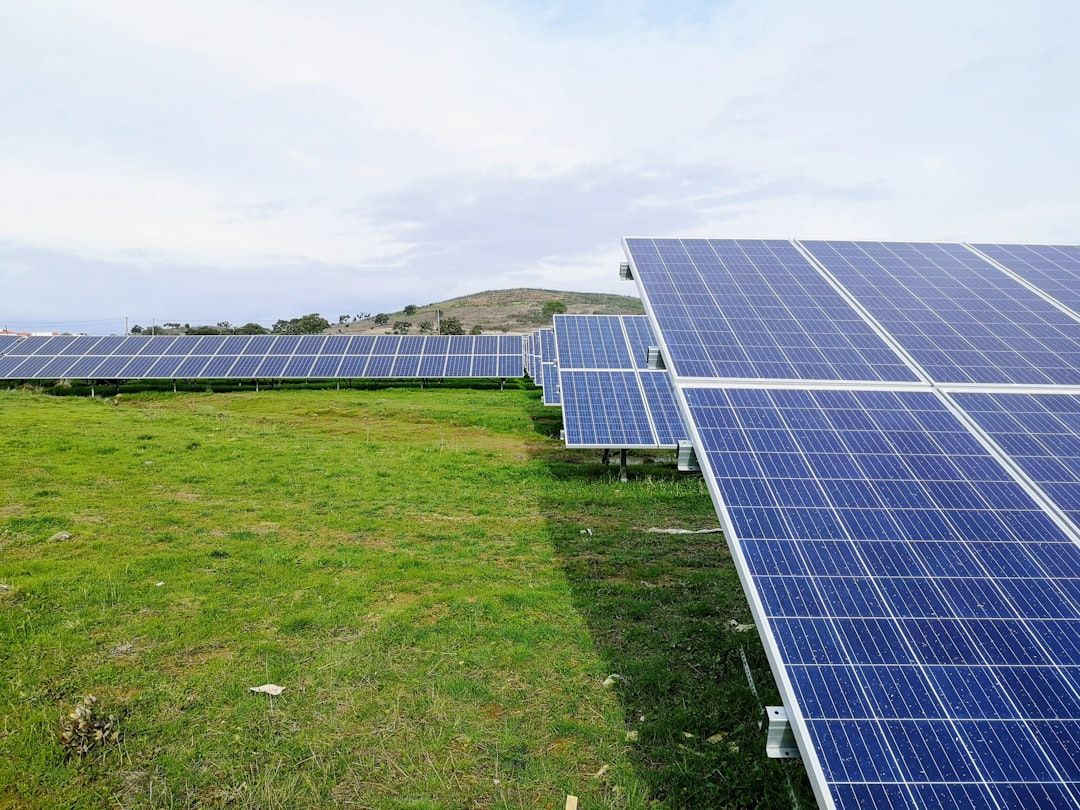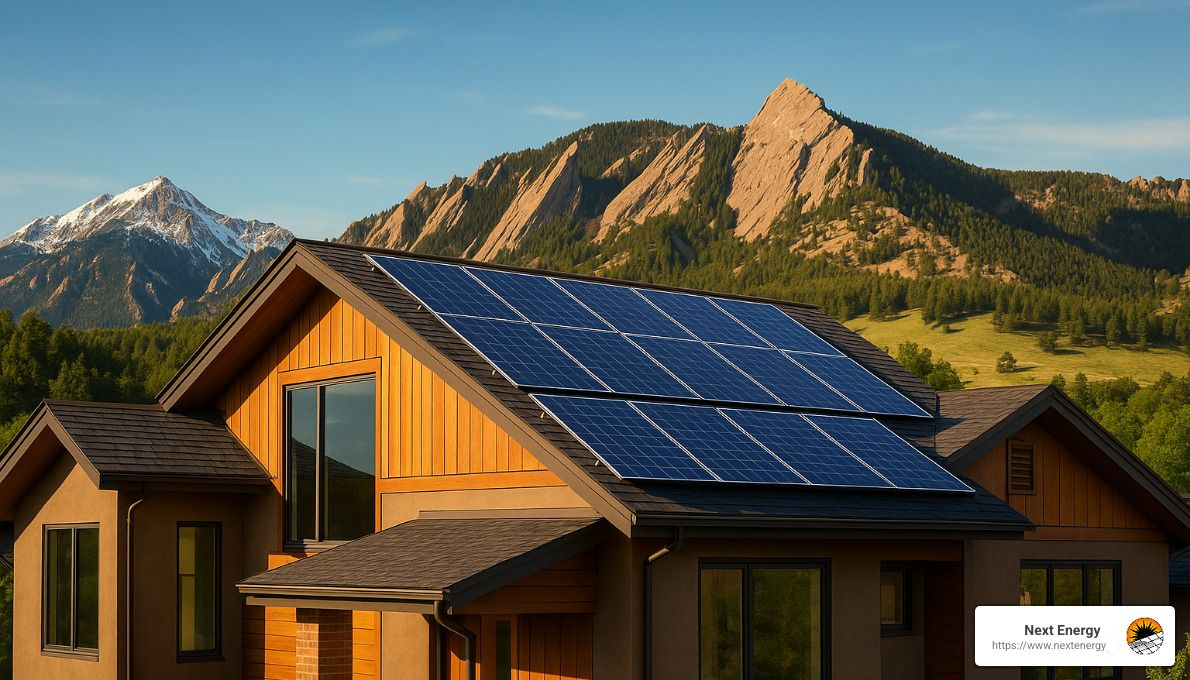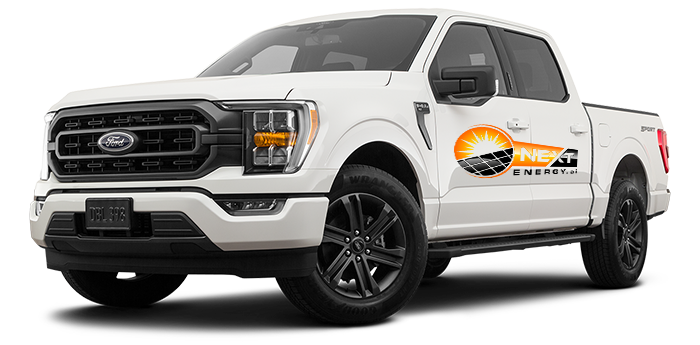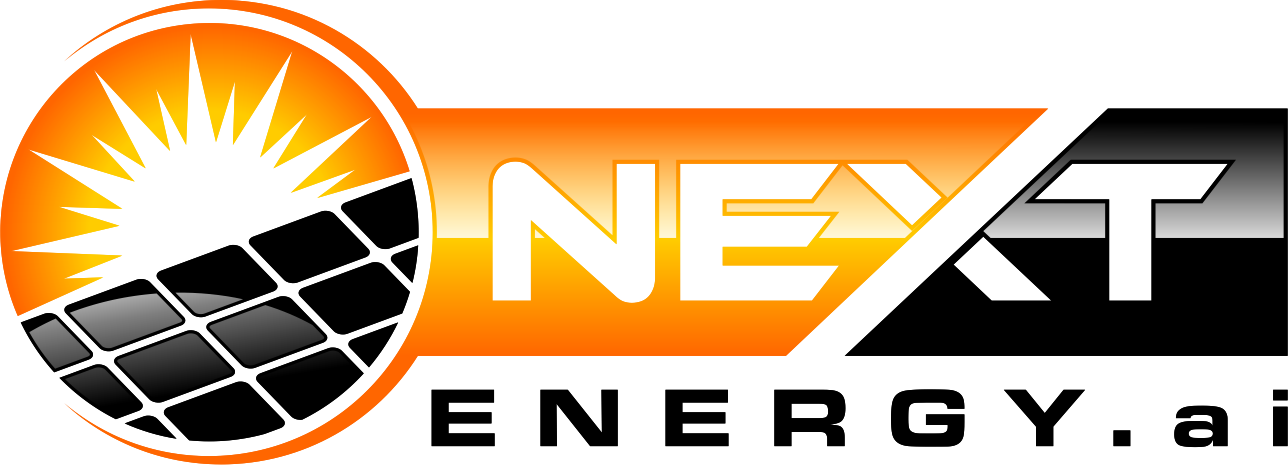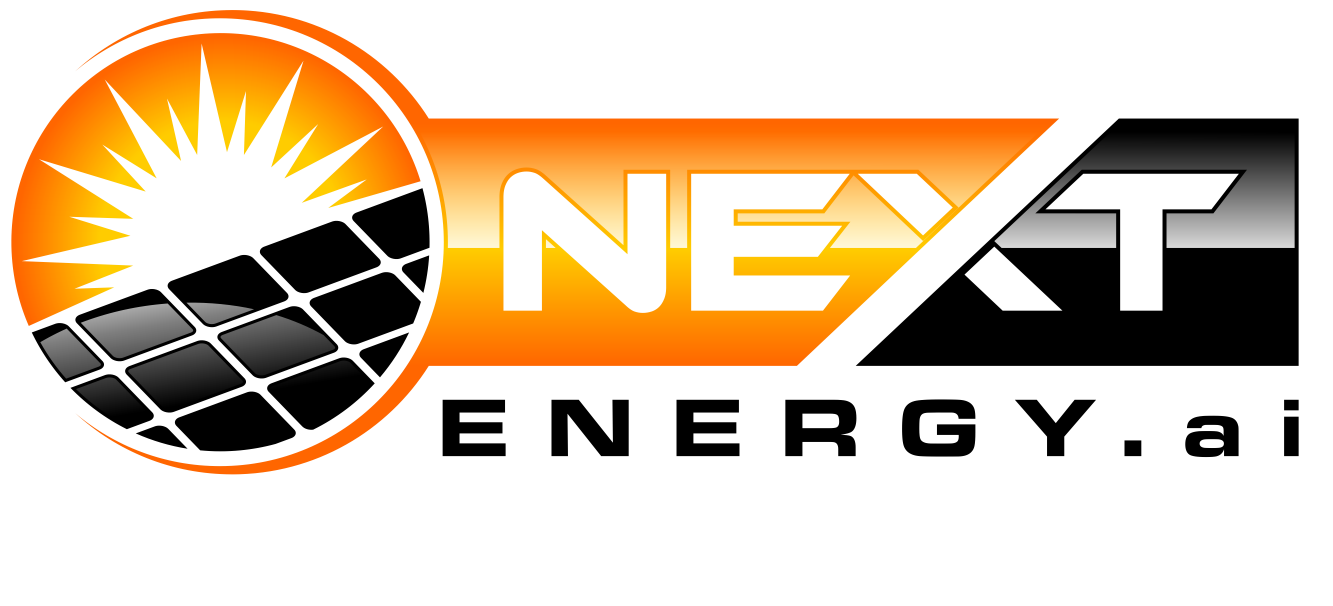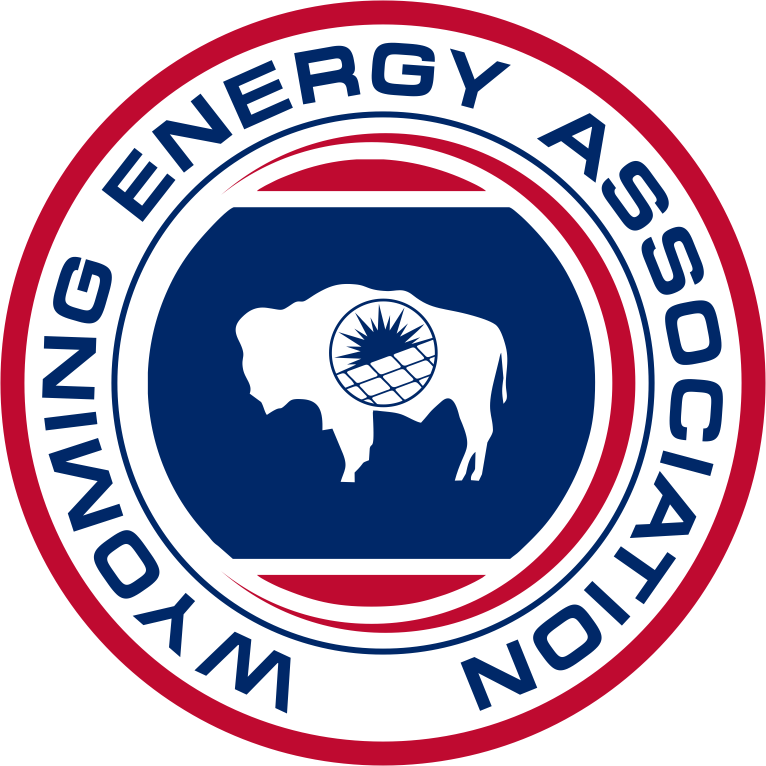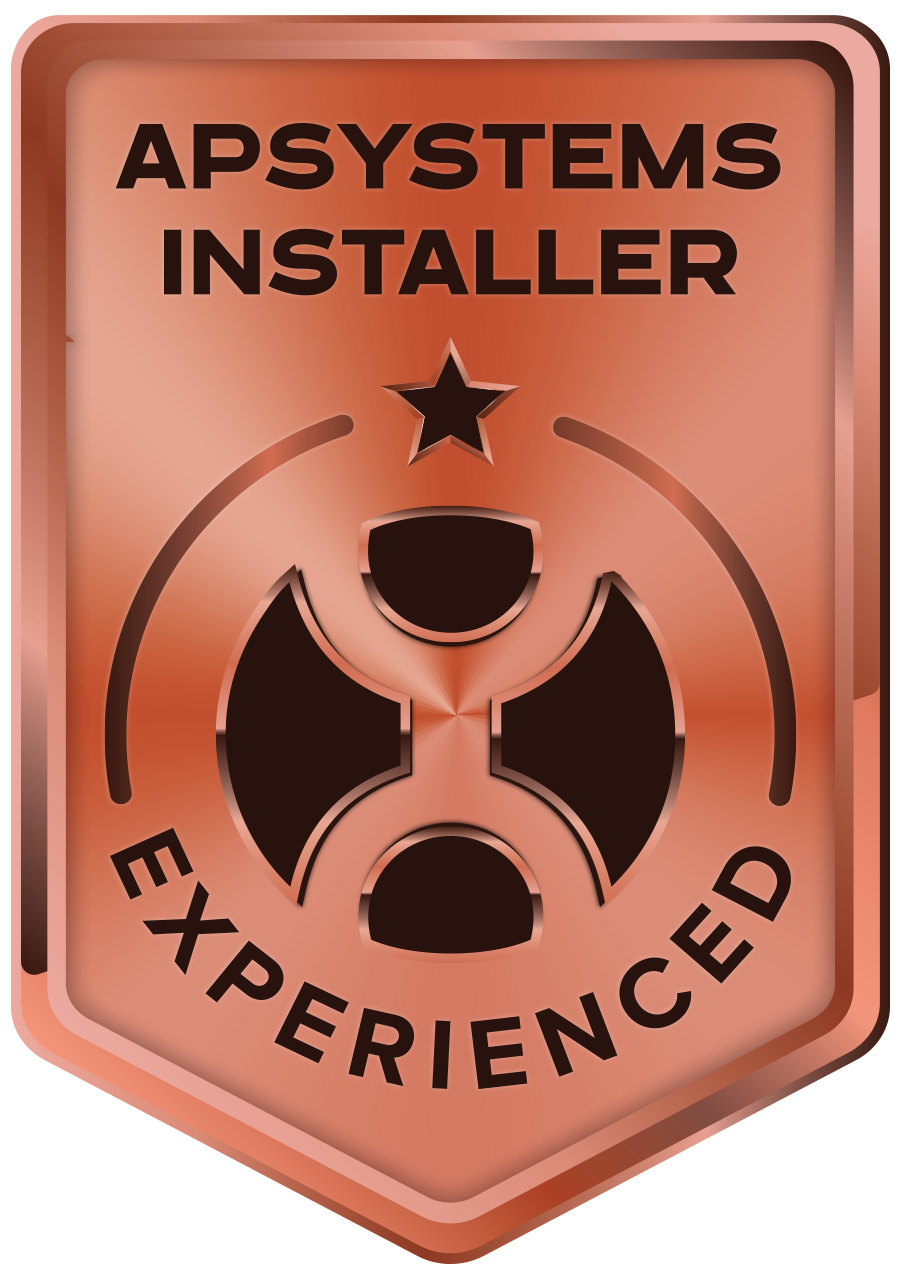Denver's Solar Stars: A Guide to Leading Solar Companies
Denver's Solar Advantage: Using 300 Days of Sunshine
Solar panel companies Denver are thriving in a city that enjoys over 300 days of sunshine annually—more than even Miami Beach! For homeowners looking to make the switch to solar energy, Denver offers numerous highly-rated solar installation options.
The average Denver homeowner needs an 8.31 kW solar system costing approximately $25,549 before incentives and $17,884 after the 30% federal tax credit. With an average price of $3.07 per watt and typical savings of $16,098 over 20 years, solar panels in Denver usually pay for themselves in about 11.25 years.
Going solar in Denver isn't just about saving money—it's about energy independence and contributing to the city's ambitious goal of 100% renewable energy by 2040. With optimal sunshine conditions and declining equipment costs, there's never been a better time to explore your solar options.
I'm Spencer Gordon, CEO of NextEnergy, where we specialize in AI-optimized solar solutions for Denver homeowners seeking maximum energy efficiency and seamless smart home integration. My journey in solar panel companies Denver began with obtaining my NAPCEP certification in photovoltaics, leading to the founding of a company dedicated to providing sustainable, locally-sourced solar solutions.
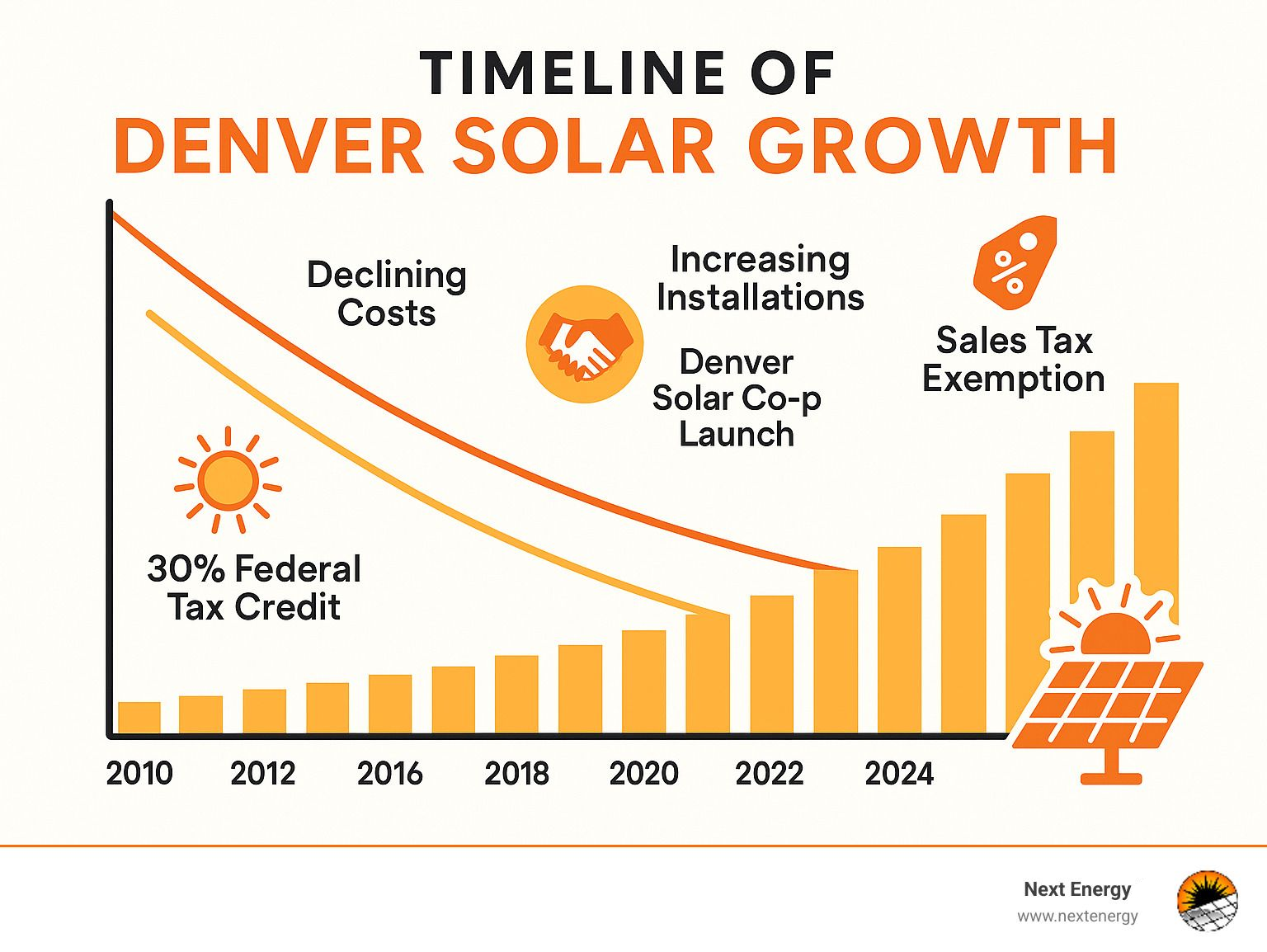
1. Reputation & Certifications: Where Trust Begins
When you're inviting someone to climb on your roof and install a complex electrical system, trust matters. For solar panel companies Denver homeowners rely on, reputation and certifications aren't just nice-to-haves—they're essential indicators of quality and reliability.
Think of NABCEP certification (North American Board of Certified Energy Practitioners) as the solar industry's seal of approval. When your installer holds this credential, they've demonstrated their expertise through rigorous testing and ongoing education. It's like the difference between a home cook and a trained chef—both might make a decent meal, but you'd probably trust the chef with your anniversary dinner.
"I almost went with the cheapest quote until I learned they weren't NABCEP certified," shares Denver homeowner Rachel Martinez. "The peace of mind from choosing a properly certified installer was worth every penny."
Beyond individual certifications, the company's structure tells you a lot about their values. Employee-owned solar companies often deliver exceptional service because the people installing your system have a direct stake in your satisfaction. This ownership mentality brings a different level of care and attention to every installation.
What your neighbors say matters too. When researching solar panel companies Denver offers, look beyond the star rating to the substance of reviews. Are customers mentioning specific strengths like communication, timeliness, and problem-solving? Companies maintaining 4.5+ stars across hundreds of Google reviews have demonstrated consistent excellence.
Warranties speak volumes about a company's confidence in their work. While manufacturers typically cover panels for 25 years, installation workmanship warranties vary widely. Some local companies offer lifetime workmanship coverage—a powerful statement of their long-term commitment to your system's performance.
Science backs the importance of installer quality too. Research from the National Renewable Energy Laboratory shows professionally installed systems produce 8-10% more energy than poorly installed ones with identical components. That difference adds up to thousands of dollars over your system's lifetime.
Why certifications set solar panel companies Denver apart
Denver's unique climate presents specific challenges for solar installations. From intense UV exposure at our mile-high elevation to heavy snow loads and occasional hail, your system needs to be built for Colorado conditions.
The best solar panel companies Denver professionals hold not just basic NABCEP-PVIP (Photovoltaic Installation Professional) certification but also understand local building codes and Xcel Energy's interconnection requirements. When your installer has master electrician credentials, you're getting expertise in the critical electrical integration that makes your system safe and effective.
Insurance and bonding provide crucial protection during and after installation. Properly insured and bonded installers shield homeowners from liability during installation and ensure any property damage gets promptly addressed. The most transparent companies will happily provide proof of insurance before starting work.
Local licensing requirements add another layer of quality assurance. Reputable Denver solar installers maintain electrical contractor licensing through Colorado's Department of Regulatory Agencies (DORA) and secure all necessary permits from Denver's Community Planning and Development department. When your installer handles all permitting seamlessly as part of their service, it's a good sign you're working with professionals.
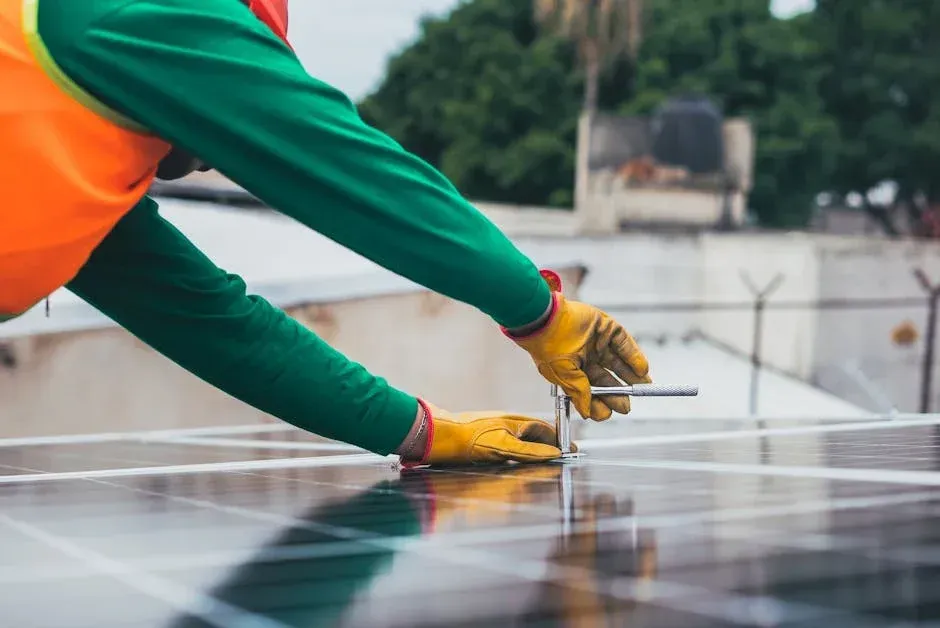
The best installers make certification and licensing information readily available—not buried in fine print. They're proud of their credentials because they've worked hard to earn them. When interviewing potential solar partners, don't hesitate to ask about their team's certifications and experience specifically with Denver installations.
2. Cost, Incentives & Financing: Crunching the Numbers
Let's talk money – because while sunshine is free, solar panels aren't (yet!). The good news is that going solar in Denver makes more financial sense than ever before. As of 2024, Denver homeowners are looking at an average price of $3.07 per watt. For a typical 8.31 kW system, that's about $25,549 before any incentives kick in.
But here's where it gets exciting – the federal Investment Tax Credit (ITC) is still going strong at 30% through 2032. That's not a deduction; it's a dollar-for-dollar reduction in what you owe Uncle Sam. For our average Denver system, this brings your cost down to $17,884 – putting $7,665 back in your pocket!
Denver residents get even more financial goodies on top of that. Xcel Energy's Solar*Rewards program pays you for the energy your system produces. Colorado also exempts solar equipment from sales and use taxes. And my personal favorite – your home value can increase without raising your property taxes, thanks to property tax exemptions for renewable energy improvements.
"Think of it this way," as one solar expert cleverly puts it, "if you could lock in grocery prices for the next 25 years, would you? That's what solar can do for your electricity bill."
The typical payback period in Denver averages 11.25 years. After that milestone, you're essentially generating free electricity for the remaining 15+ years of your system's life. That's like getting your morning coffee free for a decade and a half – who wouldn't want that?
How solar panel companies Denver price their systems
Ever wonder why quotes from different solar panel companies Denver can vary by thousands of dollars? Here's what's happening behind the scenes:
Equipment quality makes a big difference. Premium panels from top manufacturers cost more upfront but deliver better efficiency and longer lifespans. Similarly, high-quality microinverters might hit your wallet harder initially but provide superior performance monitoring and reliability over time.
Labor and overhead costs vary widely between installers. Some companies ship materials directly from distributors to your home, cutting out warehousing costs. Others maintain showrooms and larger staff teams, which adds to their overhead. As one local installer explains, "We ship materials directly from distributors to clients, cutting overhead and passing savings directly to homeowners."
Size matters too – but perhaps not how you'd expect. Local installers typically offer rates about 10% lower than national providers, according to EnergySage marketplace data. The big guys might get volume discounts on equipment, but smaller local teams often have lower overhead and more competitive pricing.
Your roof itself can impact costs. Complex designs, longer cable runs, or special mounting systems for tile roofs all add to the installation expense. It's like the difference between a simple haircut and one that requires special techniques – more complexity means more cost.
Financing options that fit Denver homeowners
Not ready to write a big check? No problem! Denver homeowners have several paths to solar without emptying their savings accounts:
Solar loans have become incredibly accessible, with terms from 5 to 25 years. Many offer zero-down options with interest rates between 2.99% and 8.99%. The beautiful part? You still qualify for the 30% federal tax credit even with a financed system. Your tax savings can then be applied to pay down the loan principal if you wish.
Home Equity Lines of Credit (HELOCs) often feature lower interest rates than dedicated solar loans, and the interest may be tax-deductible. This option is particularly attractive if you've built up significant equity in your Denver home.
Credit unions in Colorado deserve special mention. Many offer solar-specific loan programs with competitive rates. Several local credit unions specialize in renewable energy financing that's often better than what traditional banks offer.
If ownership isn't your priority, solar leases and Power Purchase Agreements (PPAs) let you go solar with little or no money down. You'll make fixed monthly payments or pay per kilowatt-hour of energy produced. While you won't directly claim the tax credit (the system owner does), these savings translate into lower monthly payments for you.
Erika Kenny, a Denver homeowner who went solar last year, shares her experience: "We explored several financing options and ultimately chose a 12-year solar loan. Our monthly payment is about $40 less than our previous electric bill, and we'll own the system outright in 12 years. After that, it's essentially free electricity."
With scientific research on federal tax credit confirming the significant savings available, and more info about Solar Panel Installation just a click away, Denver homeowners have never had better financial incentives to harness the power of those 300 annual days of sunshine.
3. Technology, Installation & Service: Getting the Most From the Sun
Solar technology has come a long way in recent years, and Denver residents are reaping the benefits. Today's solar panels convert 19-22% of sunlight into electricity—a huge leap from the 14-15% efficiency we saw just ten years ago. These high-efficiency panels are perfect for making the most of Denver's 300+ days of sunshine, while still performing admirably during our winter months.
"The panels we're installing today are not only more efficient but also more durable," a NextEnergy technician told me recently. "They're engineered to withstand Colorado's unique weather conditions, including our infamous hailstorms."
The brains behind your solar system—the inverters—have evolved just as impressively. Modern microinverters or power optimizers allow each panel to work independently. This means if one panel gets shaded by a chimney or tree, the others keep working at full capacity. Plus, you can track how each panel is performing right from your smartphone, giving you that satisfying feeling of watching your energy production in real-time.
Battery storage has become the hot new addition to Denver solar installations. Quality battery systems not only keep your lights on during outages (which, let's face it, feels pretty good during those unexpected summer thunderstorms), but they also let you use your own solar energy during peak evening hours when electricity rates are highest.
"About 30% of our installations now include battery storage, up from just 5% three years ago," notes one solar panel companies Denver professional I spoke with.
The real game-changer, though, is AI-driven energy management. These smart systems analyze your usage patterns, check weather forecasts, and monitor utility rates to decide when to use solar power, when to store it, and when to draw from the grid. It's like having a tiny energy economist working for you around the clock.
Your solar investment is built to last. Most panels will keep producing power for over 25 years, typically still generating 80-85% of their original capacity even after a quarter-century. Inverters generally last 12-25 years depending on the type, while batteries usually need replacement after 10-15 years.
Maintenance is surprisingly minimal—another perk of going solar in Denver. Our regular rain and snow actually help keep panels clean (nature's free cleaning service!), though an occasional professional inspection ensures everything's running at its best. More info about Solar Installation Services
Net metering is another crucial benefit for Denver solar owners. This billing mechanism credits you for excess electricity your system sends to the grid. As one installer explained it to me, "Net metering lets you bank daytime solar energy to the grid as credits that you draw on at night or on cloudy days." Think of it as the utility company becoming your personal battery bank.
Why certifications matter for solar panel companies Denver trusts
When it comes to installation quality, solar panel companies Denver homeowners trust understand that proper permitting and code compliance aren't just bureaucratic hoops—they're essential safeguards for your home and family.
Denver has specific requirements for solar installations, including structural engineering reviews (to make sure your roof can handle the weight) and electrical permits to ensure everything's wired safely. Safety codes govern everything from how panels attach to your roof to how the electrical connections are made.
NABCEP-certified installers follow detailed inspection checklists that often go beyond minimum code requirements. This attention to detail ensures your system will perform safely and efficiently for decades, not just years.
Michael Craven, a Denver homeowner, shared his experience with me: "What impressed me was how thoroughly they explained the permitting process and handled all the paperwork. They coordinated multiple inspections and even arranged the final utility interconnection. I barely had to lift a finger."
The typical Denver solar install timeline
Going solar in Denver follows a pretty predictable path:
First comes your initial consultation and site assessment (1-2 weeks). This is when installers analyze your energy usage, check your roof condition, look for shading issues, and evaluate structural considerations. It's like a home checkup, but for solar readiness.
Next is system design and proposal (1-2 weeks). Engineers create a custom system based on your energy needs and home characteristics. This is when you'll see exactly what your system will look like and how it will perform.
Permitting (2-4 weeks) often takes the longest. Your designs must be approved by the city and sometimes by homeowners' associations too. This is where having an experienced solar panel companies Denver installer really pays off—they know how to steer the local bureaucracy.
The actual installation (1-3 days) is surprisingly quick. Most residential systems are completed in just 1-3 days, with teams of 2-4 professionals working efficiently to get everything in place.
After installation comes the city inspection (1-2 weeks). The city must inspect and approve your system before it can be activated.
Finally, there's utility interconnection (1-4 weeks). The final step involves Xcel Energy installing a net meter and giving you permission to operate. That moment when you flip the switch and start generating your own power is truly satisfying!
"We completed a 6 kW system covering 100% of our home's electric use," Ron, a Denver homeowner, told me. "The installation team arrived early, worked efficiently, and left our property cleaner than they found it. The whole process from signing to power-on took about 8 weeks, with most of that time spent waiting for permits and inspections."
With the right solar panel companies Denver homeowners choose, this process becomes surprisingly smooth. The best installers handle all the technical details, paperwork, and coordination, letting you focus on the exciting part—watching your electric bills shrink while your energy independence grows. More info about Solar Panel Installation
Frequently Asked Questions about Picking the Right Solar Partner
What incentives, rebates, and tax credits can I claim in 2024?
If you're considering solar in Denver this year, you're in luck! The financial incentives have never been better.
The biggest money-saver is the Federal Investment Tax Credit, which gives you back a whopping 30% of your total system cost when you file your taxes. For most Denver homes, that's about $7,665 back in your pocket! The best part? There's no upper limit, and if you can't use the full credit this year, you can carry it forward.
Xcel Energy's Solar*Rewards program adds another layer of savings by paying you for the electricity your system generates over 10 years. It's like getting a thank-you check for going green!
"Between the federal tax credit and Xcel's incentives, nearly half my system cost was covered," shares Denver homeowner Mark Jennings. "It made the decision to go solar pretty much a no-brainer."
Colorado also gives solar buyers a nice break on taxes. You won't pay the 2.9% state sales tax on your equipment, and the value solar adds to your home is exempt from property taxes. That means your home value goes up, but your property tax bill doesn't!
Net metering rounds out the incentive package by crediting you for excess energy at retail rates. Think of it as using the grid as a free battery – you bank extra power on sunny days and draw from your credits when it's cloudy.
How many years will my solar panels last, and what maintenance is required?
One of the best things about solar panels is their impressive longevity. Most systems installed by solar panel companies Denver homeowners trust will keep producing clean energy for 25-30 years – sometimes even longer!
"We installed our panels back in 2010, and they're still going strong," says longtime Denver resident Robert Chen. "They've weathered multiple hailstorms without a scratch."
The maintenance needs are refreshingly minimal. Denver's regular rain and snow actually help keep your panels naturally clean. You might want to give them a gentle rinse with a garden hose during exceptionally dusty periods, but that's typically only needed once or twice a year, if at all.
Annual visual inspections are a good idea to catch any potential issues early. Many installers include monitoring services that alert you if your system's performance drops unexpectedly.
What about snow? Generally, you can leave it alone. The dark surface of the panels warms up and melts snow fairly quickly, and the energy lost during brief snow coverage is usually minimal. Most panels are installed at an angle that helps snow slide off naturally.
The only component you might need to replace is the inverter. Standard string inverters typically last 12-15 years, while microinverters often match the 25-year lifespan of the panels themselves. When budgeting for the long term, it's smart to plan for this eventual replacement.
Can solar panels increase my Denver home's resale value?
Absolutely! Solar panels don't just save you money on electricity – they can put thousands more in your pocket when you sell your home.
According to research by Zillow, homes with solar panels typically sell for about 4.1% more than comparable homes without solar. For the average Denver home value of around $600,000, that's a potential $24,600 increase – often exceeding what you paid for the system after incentives!
"When we sold our Denver home last year, buyers were fighting over it," shares Jessica Martinez. "Our realtor highlighted the monthly energy savings alongside the mortgage estimate, showing buyers they'd have lower monthly costs than with other homes in our neighborhood."
Several factors affect exactly how much value your solar system adds:
System ownership matters significantly – owned systems (whether purchased outright or financed) add more value than leased systems.
System age and condition play a role too. Newer systems with longer remaining warranty periods naturally command higher premiums.
System size and production capacity affect value as well. Larger systems that offset more of the home's energy needs add more value.
As Denver's electricity rates continue to climb, the value of avoiding these costs through solar ownership becomes even more attractive to buyers. Real estate professionals throughout the city have become increasingly solar-savvy, making it easier to market and properly value solar-equipped homes.
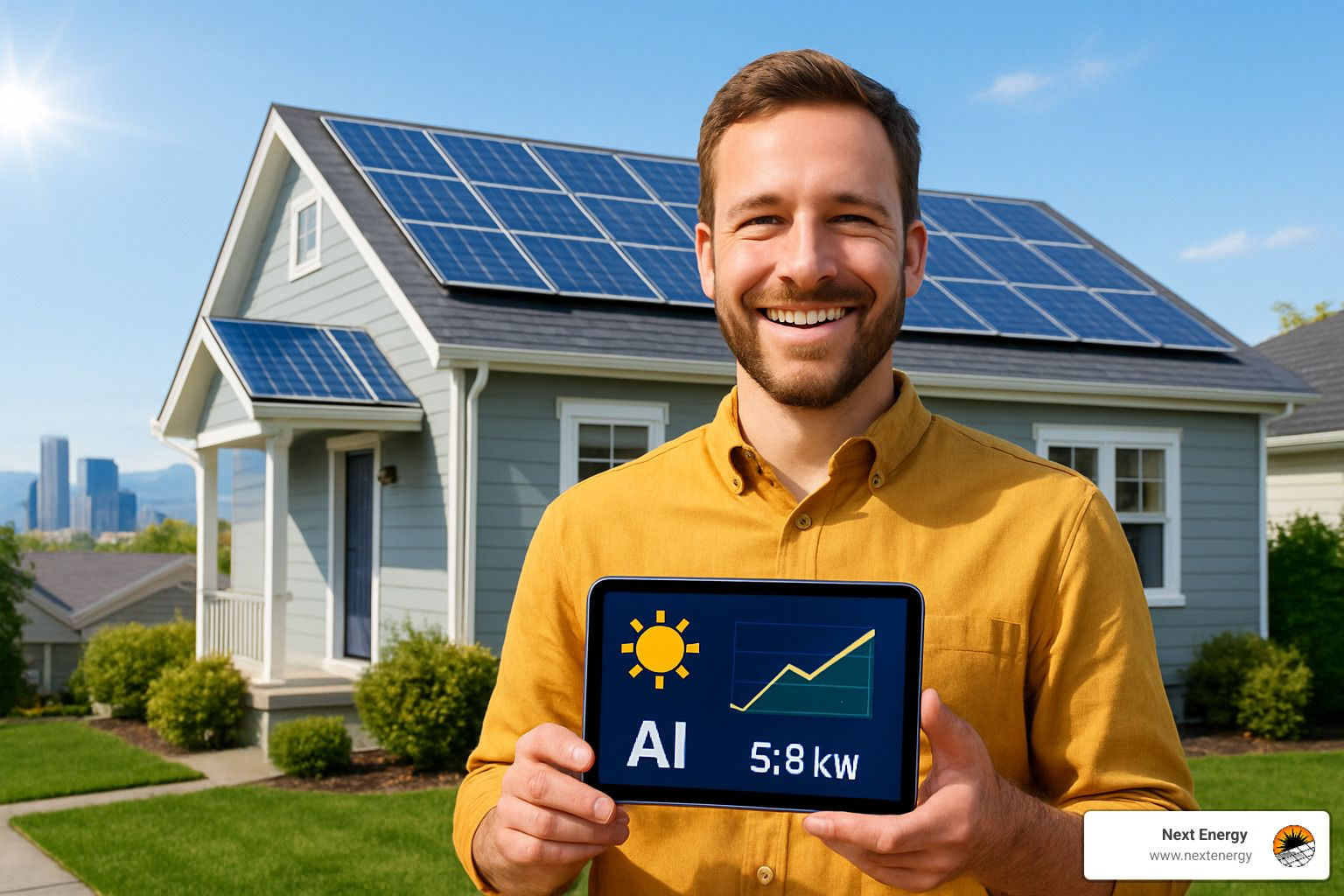
Conclusion
Denver's combination of abundant sunshine, rising utility rates, and strong incentives creates the perfect environment for solar energy adoption. With the average system paying for itself in just over 11 years and continuing to produce for 25+ years, the long-term savings are substantial—approximately $16,098 over 20 years for the typical homeowner.
Beyond financial benefits, solar panels increase home values, reduce carbon footprints, and contribute to Denver's ambitious goal of 100% renewable energy by 2040. As one homeowner put it, "Going solar was one of the best decisions for our home, community, and family."
The evolution of solar technology continues to improve the value proposition. Modern high-efficiency panels, advanced inverters, and battery storage systems deliver more energy from smaller footprints. AI-optimized solar solutions take this further by intelligently managing energy flow between your panels, home, battery, and grid to maximize savings and resilience.
At Next Energy, we're proud to serve the Denver community with cutting-edge solar solutions that integrate artificial intelligence for truly optimized energy management. Our systems learn your usage patterns, monitor weather forecasts, and automatically adjust to maximize your savings while ensuring you have power when you need it most.
As you consider your solar options in Denver, the company you choose matters as much as the equipment they install. Look for NABCEP certification, strong warranties, transparent pricing, and a proven track record of quality installations. The best solar panel companies Denver offers will guide you through every step of the process, from initial assessment to final interconnection and beyond.
The solar revolution in Denver is well underway. With each new installation, our community moves closer to energy independence, environmental sustainability, and a brighter future powered by the abundant Colorado sunshine.
